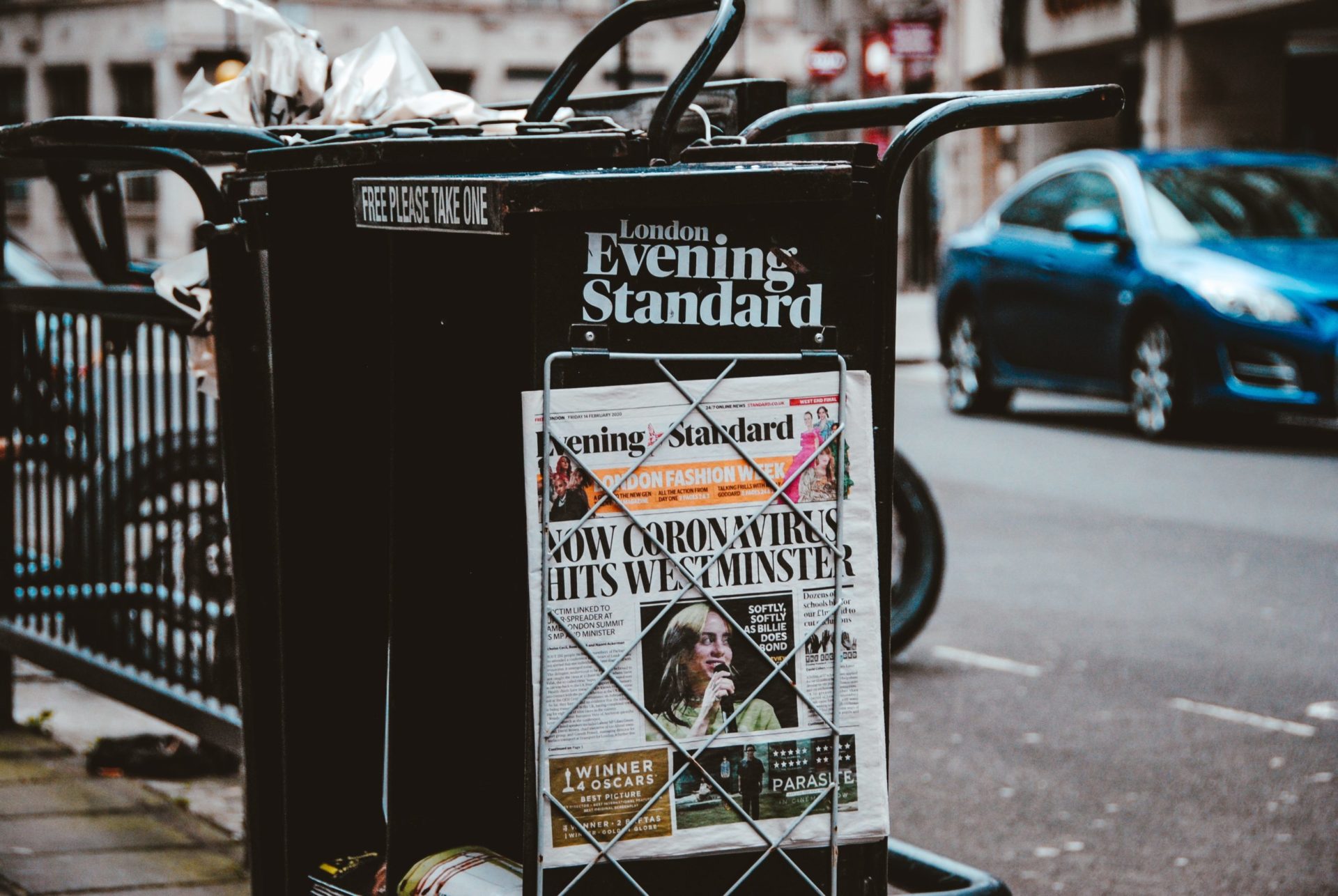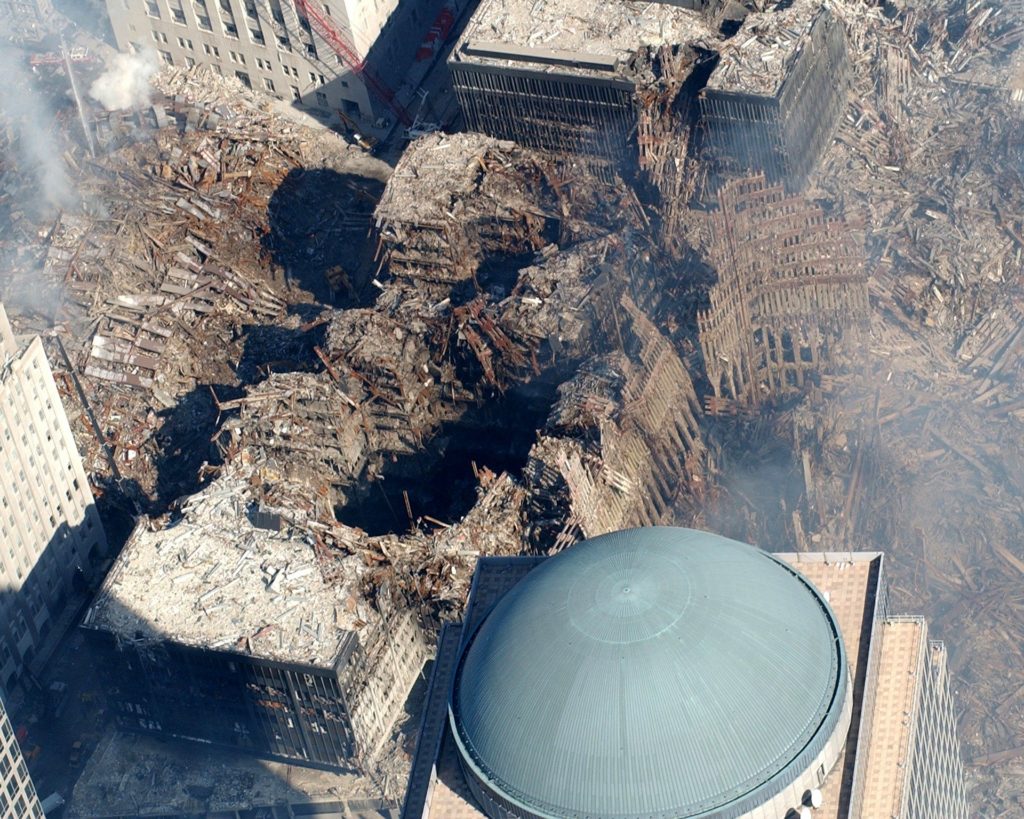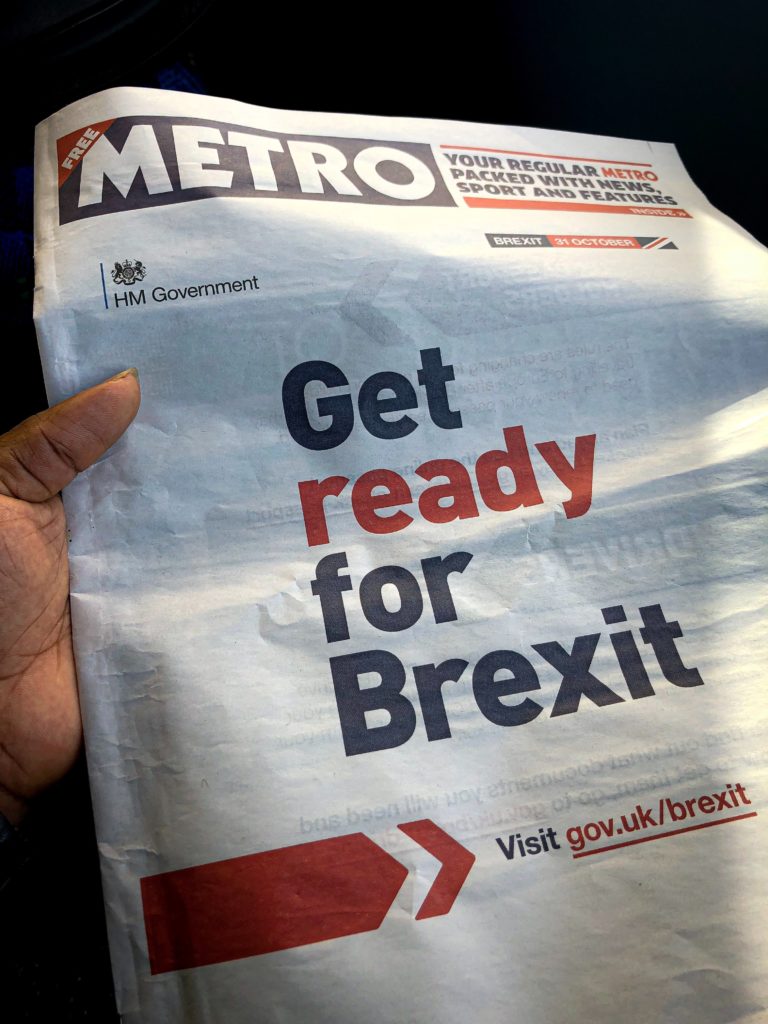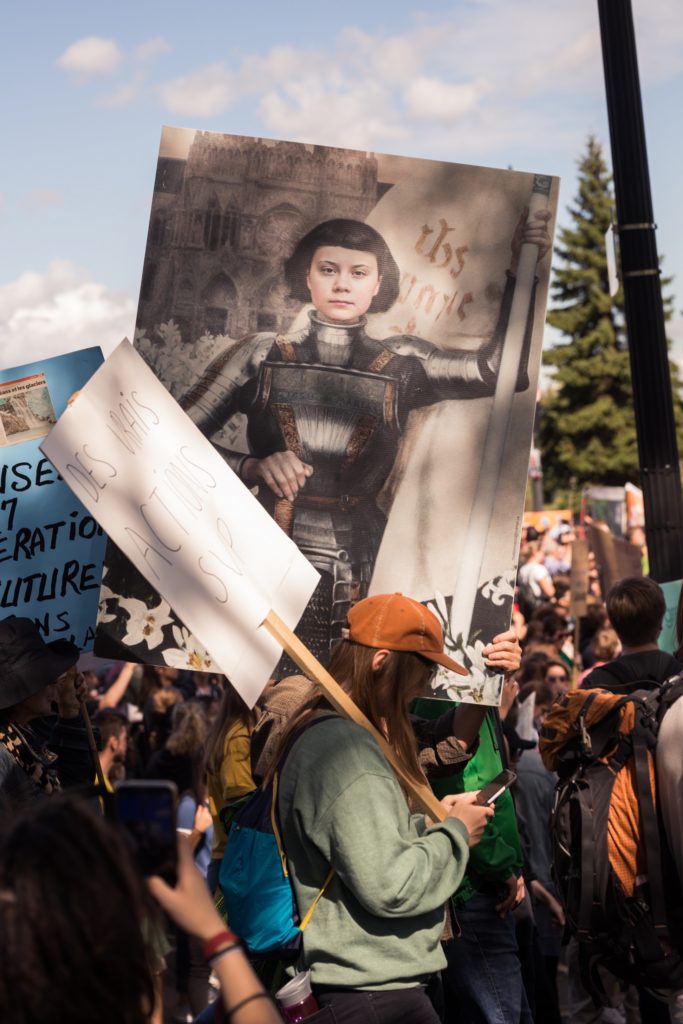by Richard Walker
When I joined the DecarboN8 Network team at ITS on a secondment from the Department for Transport just four short weeks ago, I did not expect to be writing a blog to introduce myself in circumstances of a public health emergency that will change the world drastically. I was expecting to be writing about making 2020 a year of bringing the climate emergency to the top of the political agenda, building up towards meaningful global action on transport decarbonisation at the 26th UN climate summit (COP-26) in Glasgow in November. In this moment though it feels more important to write about coronavirus and what it might mean for the climate emergency.
But as my kids’ ‘LOTRmemes’ Reddit feed tells me, we do not get to decide what our time is, all we have to decide is what to do with the time that is given us.
A threat growing exponentially gives us little time to adjust to the enormity of what we are facing. This might be a virus; or as the Australians can teach us, a bush fire; or, as the Bahamians could teach us (if only we asked them), a monstrous hurricane. We must try our best to avoid being overwhelmed. First, we need to survive. Then, if we survive, we can ask, how can we make some good come out of this disaster?
DecarboN8 launched in November, and has already built a useful network of researchers, practitioners and active citizens to discuss, assemble evidence and take action on transport decarbonisation. I believe we can already say that its three year timespan will now be years defined by coronavirus and the social, economic and political fallout from it. We must adjust and respond; and make ourselves as useful as possible. What we can do is not yet clear, but those of us locked down at home will have time to think about the question, and we can use this network as a forum to discuss it.
Here is my first contribution to such a conversation, which I hope will involve many and diverse voices from across the DecarboN8 Network. It is a blog on some of the emergencies I have seen, and how they have interacted with the question of transport decarbonisation. I stress that this is a personal account; and represents my own view and not that of my employers.
TL;DR: we have known for 30 years that there is nothing more important than addressing carbon emissions, but again and again emergencies have come along that have, understandably, been deemed more urgent, and which have pushed decarbonisation down the list of things to do. In our own field of transport, far too close to nothing has been done. Can we, somehow, use this new global disaster to galvanise global action on the climate emergency?
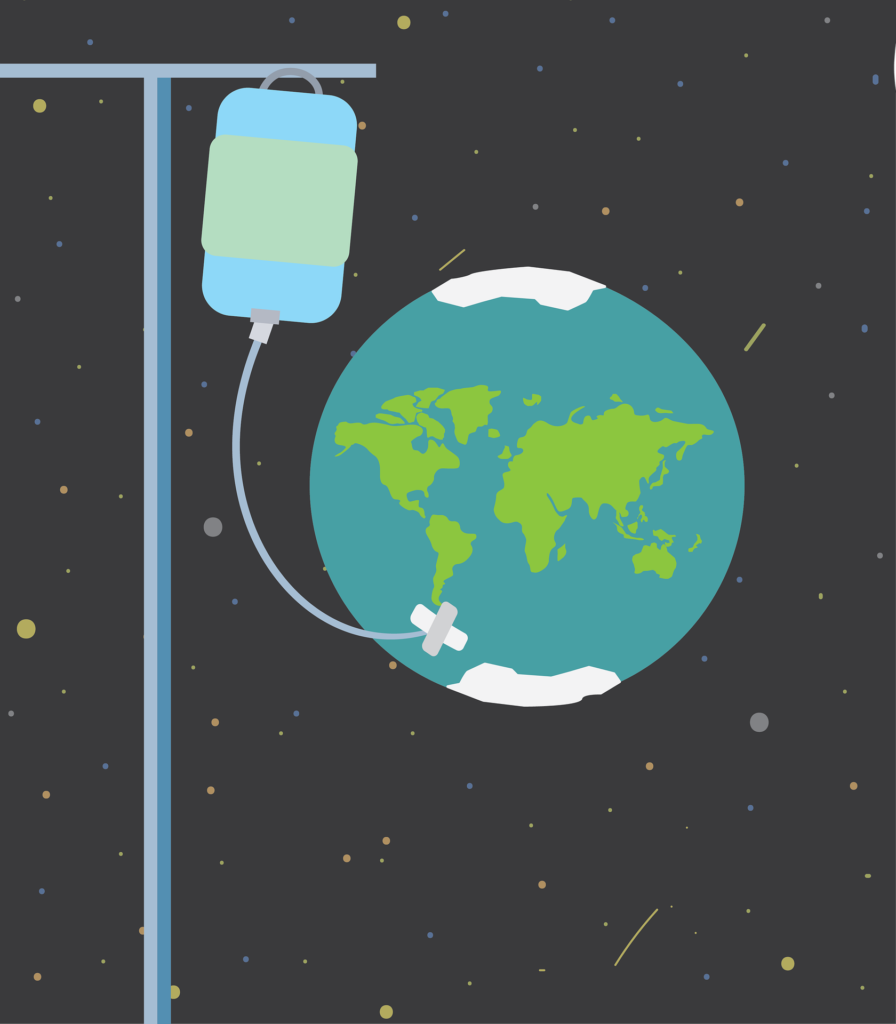
An old timer’s tale
Born and bred in Bolton, I’m a geographer and town planner who has been in the transport planning game since 1991. I worked for the planning, transport and economics consultancy, Colin Buchanan, in places including Oxford, London, Sydney and Shanghai, then for the Greater London Authority, the Strategic Rail Authority and, since 2005, the Department for Transport (DfT). For the last 7 years or so, I have been mostly working on how transport strategy can support the sustainable economic development of the North of England. That time has included secondments out of DfT to the North East Local Enterprise Partnership and Transport for the North.
Arriving at a university of 35,000 bright young students brings it home forcibly that I might be getting a bit older than I was. I’m still resisting the idea that I’m just an old timer with little fresh to offer, but I’m content to embrace the notion that I’ve now been around long enough to see a few turns of the wheel.
In 1991 we already knew a lot about climate change. Mainframe computers could churn out forecasts of future temperatures and sea levels that looked catastrophic. At the Earth Summit in Rio de Janeiro in 1993 the United Nations Framework Convention on Climate Change was signed, and ‘Local Agenda 21’ became a thing. Agenda 21 was essentially optimistic: through ‘sustainable development’ we could both fix poverty and save the planet.
I believed then (and still do) that transport planning could help balance our needs and desires for mobility with those for nicer, non-traffic-choked places to live in, whilst also saving the planet. I worked mostly on traffic reduction schemes for congested towns and cities.
In 1997, in the UK, after 5 years of civil society campaigning, the Road Traffic Reduction Act was passed. It was the final law passed by a Conservative government that had been in power for 18 years. Local authorities had to either set a target for reducing road traffic in their area, or explain why they considered it inappropriate to do so. As a young transport planner, it felt like a great success for the transport planners’ balanced approach, especially as a means of reducing transport carbon emissions. Then Tony Blair’s New Labour were elected on a landslide, and things were only going to get better.
The third annual Conference of Parties (COP-3) was held in Kyoto in 1997. The world’s leaders signed a protocol: the time for debate was over – global warming was real, man-made, and the world would act through binding agreements to stop it. Lobbyists, who were being paid by the fossil fuel industry to sow the confusion known as climate change scepticism, had been beaten. Or so it seemed.
But in 2000, US Vice-President Al Gore, who knew that climate change was an inconvenient truth that must be faced, was beaten in the US presidential election. The tied election in Florida was called for Florida Governor Jeb Bush’s brother, Texas oilman George W. Bush. The oilmen were now in control of the US Government, and progress on Kyoto stalled.
The world in crisis
I vividly remember the 9/11 attack on New York City in 2001. It seemed to come out of the blue and was deeply shocking. I ran out of the office and bought a set-top aerial for the cathode ray tube TV in my company’s conference room, so we could watch the live coverage on the BBC. Everybody knew that this meant some major change would now happen, but of course nobody at that time could know that it would launch a ‘war on terror’ that has so far cost between one and three million lives and US$1.8 trillion.
On 15 February 2003 ten million people in 600 cities protested against the invasion of Iraq. I expect most of those ten million would have readily agreed that global warming was the bigger overall issue, but if at the time you had asked them, they would have said – quite understandably – that trying to stop the war was the more urgent issue.
I also remember the global financial crisis of 2007-08, which first came to wide attention in August 2007 with the sight of people queuing down Northumberland Street in Newcastle to get their money out of Northern Rock bank; the first run on a British bank since 1866. By September 2008, the world was within days of the complete collapse of the global financial system.
US Treasury Secretary Hank Paulson’s $700bn TARP bailout saved the US banks. Paulson, whose previous job was chairman and CEO of investment bank Goldman Sachs, signed off reclassification of Goldman as a clearing bank 24 hours before it would have gone bankrupt. This move qualified it for a $10bn bailout, no strings attached. Multi-million-dollar bonuses went straight back on the menu. Goldman’s CEO described the company as “doing God’s work”.
The financial system’s cardiac arrest was clearly a big thing, but few foresaw how much the choices made in its aftermath would dominate the decade to follow. Regarding climate change, it was not immediately apparent that the crash would stop progress towards concerted global action on carbon emissions. Arguably, Britain attempted to lead the way – by writing an 80% cut in emissions by 2050 into law, through Ed Miliband’s Climate Change Act 2008.
Barack Obama, who understood what climate change was and meant long term, had entered the White House, and people were getting ready for the world to agree binding emissions reductions at COP-15 in Copenhagen in December 2009. But Obama decided that the post-crash recession in the world economy was the more urgent problem and killed a meaningful deal that bound the USA to make serious emissions cuts.
The world recession saw governments’ income from taxation fall, and public sector deficits became a hot issue. In 2010, two Harvard economists, Reinhart and Rogoff, made a mistake on an Excel spreadsheet and there was a panic about how high public sector debt could safely go.
In Britain, the incoming Cameron/Clegg coalition government’s no.1 priority was to reduce the deficit, both by reducing public sector spending and by leaving no stone unturned in pursuit of growth. In the North of England, the growth agenda was branded as ‘building the Northern Powerhouse’. The UK looked to increase economic productivity using a definition of ‘productivity’ that measured Goldman Sachs bankers as the most productive workers in our economy.
But no sooner had that policy approach started to build up a head of steam than it was itself disrupted unexpectedly – by the Brexit referendum result in June 2016. Yet again, it was not immediately obvious that the ramifications of that shock would dominate the years to follow quite so completely. Despite best intentions, it does seem that the important lesson to learn is that our political system can only deal with one top priority at a time.
In 2016, at COP-21 in Paris, a deal to follow Kyoto was signed. But it placed greater emphasis on what needed to be done than about what would be done. By the end of 2018, the evidence on the ground of global heating as a real and present danger was everywhere – on the ice floes, in the rainforests, in an English country garden. Yet on the political agenda, worldwide, the issue was quiet.
It took a Swedish schoolgirl to remind the grown-ups of what they knew needed to be done, had promised would be done, and had then psychologically buried. In 2019, action on climate change was yanked back towards the top of the political agenda worldwide by youth-led peaceful protests. In the UK, 282 local authorities and the UK House of Commons declared a climate emergency. The British Government declared that it would strengthen its efforts to meet its commitments under the Paris Agreement and set a new legally binding target of ‘net zero’ carbon emissions by 2050.
And now, 2020
9/11 and the global financial crisis were giant emergencies, and they both had repercussions lasting longer than a decade. Yet in terms of both human deaths and economic impact, it’s very possible that coronavirus will become the bigger than both. We don’t know now how bad coronavirus will get in the world outside China, but things look bad.
Warren Buffett said about companies in a recession that when the tide goes out, you discover who’s been swimming without trunks. I think we are going to discover that this aphorism also holds for countries and economic systems.
The past 30 years of emergencies teaches us that we can already say two things: first, that coronavirus will squeeze the climate emergency out of the spotlight for a longer period of time than we presently expect, and second, that however bad it gets, in the long term it is still less important than the climate emergency.
The bush fires in Australia at Christmas 2019 were a clear message for everyone to grasp that we are running out of time to act. We can expect more devastating forest fires across Eurasia and North America in the 2020 northern hemisphere summer. We cannot afford for coronavirus to delay action on decarbonising our lifestyles and the world economy.
City lockdowns and the sudden halt of global aviation will slash world carbon emissions by a surprising amount in a period of a few weeks: the data will no doubt come in soon. Those who said deep cuts in carbon emissions were impossible are now empirically wrong. But the case that carbon emissions can be drastically reduced without provoking economic damage remains unproven.
It seems likely to me that the steps already taken to address this disaster will bring the current 40-50 year epoch in the world economic system to an end. What the economic system of the next epoch will be is currently up for grabs. The Wall Street and City of London boys who kept hold of the top perch after 2008 will be hatching a plan for it, although this disaster may prove too big even for them.
People working in health care, social care, supermarkets, logistics, food processing were defined as recently as a few weeks ago as ‘low skilled’, when what was meant was, they were low paid. By mainstream economics’ official definition, they were low productivity. This week they are the key workers without whom we can’t survive. That is a change already – but they remain the low paid. Will they accept that for long?
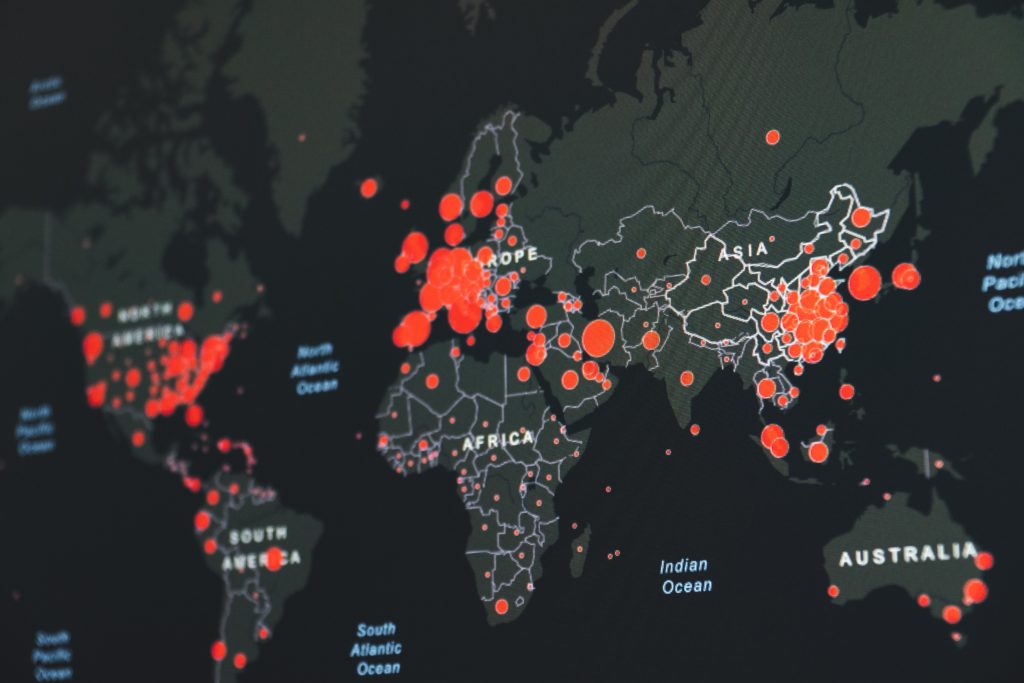
Making use of the DecarboN8 Network
How can the DecarboN8 Network respond to this emergency, and make ourselves useful? First, we should recognise that the economic shock is massive, frightening and disorientating – like getting the disease itself. Second, again like getting the disease itself, if we survive it, we will emerge from it.
New ways of life and a new economy are now on the cards, whether we like it or not. The role of the DecarboN8 must be to keep the climate emergency and transport decarbonisation high on the political agenda as we emerge from the aftermath. We must assemble evidence, come up with ideas, and support our members to take action.
Through the DecarboN8 Network, you can play a role and have a voice in that. DecarboN8 will be reaching out to you soon, so watch this space. Together, let us find ways to deliver a climate smart recovery from this severe global crisis which is more equitable and future-proof.

